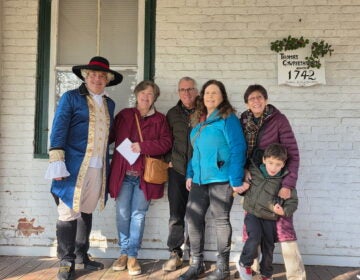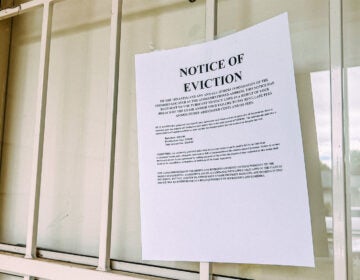Farm-to-fork trend challenging the traditional diner menu in South Jersey
The Jersey diner. We all know it pretty well: big menus, bigger portions and even bigger cakes and pies. But a couple of diners in South Jersey are challenging the typical diner style by bringing the farm-to-fork experience to everyone.
“For us to have a real change in the way we produce and view food in this country, we need everyone to participate,” ‘Jersey’ Jim Melissaratos, co-owner of Vincentown Diner said.
At the intersection of Route 38 and US Highway 206, Vincentown Diner looks like your typical Jersey diner. But look a little closer and you’ll notice the signs outside that tout the use of organic eggs.
Not your typical diner
Want a burger? The items on the menu are made with grass-fed beef raised in Jersey. The meatloaf, too. Most everything on the menu has been made with ingredients that have been grown or raised in the region. You can also enjoy a beer or some wine with your meal, and yes, those are all regional as well. Not too far from the diner, down Route 206, you’ll find Valenzano Winery in Shamong, one of the wines regularly available.
Wine was actually the beginning of the movement made by Vincentown Diner toward locally-sourcing their supplies. Having difficulty in getting wines for a “Wines of the World” monthly theme back in 2004, Melissaratos made the decision to make the event a wine tour of New Jersey.
Soon Jersey wines were all that you could find on the menu. From there, the diner began to reach out to local farms to supply their produce. And being smack dab in the middle of farmland, that certainly made a lot of sense.
Did the customers notice the changes? Maybe not initially, but in the last few years the diner has received a lot of thanks and appreciation for their efforts. And it’s certainly received national attention as well. After all, how many South Jersey diners can boast a favorable review from the New York Times?
Melissaratos believes in not only serving good food to the local community but connecting to and supporting the local community.
“It’s about investing in our region and making close personal connections with the people and land that the food comes from. I personally know who bakes my bread, makes my wine, picks my fruit, grows my vegetables and even pulls my potatoes out of the ground,” says “Jersey Jim.”
“My food has a face and that means something to me.”
Growing trend
“As the typical diner often conjures up images of “unhealthy” food, Silver Diner has always had to combat that battle,” says Ype Von Hengst, founder and executive chef of Silver Diner.
Founded in 1989, Silver Diner is actually a chain of diner-style restaurants that began with a focus on healthier and lower-calorie meals. There is one location in New Jersey, just across from the Cherry Hill Mall. And if you think a diner chain in New Jersey (the capital of diners after all) sounds crazy, think about their decision three years ago to go farm-to-fork at all of their locations.
By operating in a region from Virginia to New Jersey, this gives Silver Diner plenty of farms from which to choose. They get their bison from an all-nautral farm in Maryland, eggs from Lancaster County in Pennsylvania, and craft beer and wines from Virginia. For their produce, they source as much as they can locally, so the vegetables at their Cherry Hill location will be primarily from Jersey farms. Even their coffee is local, with the beans brought in from Lacas Coffee in Pennsauken.
Have the changes been successful? Overall, Chef Ype believes so. Three years ago, Silver Diner invested $750,000 across all locations (from Virginia to New Jersey) for the implementation of going more local. In 2011, Silver Diner saw an increase in their sales by 10%. There were some bumps in the road, however. Two of Silver Diner’s locations in Virginia closed at the end of 2011.
To those who might suggest that Silver Diner is not a “true” farm-to-fork establishment since many of its food items come from out of state, keep in mind that at the time they made their switch, Silver Diner was the only multi-unit family restaurant attempting such a change in its food distribution. With ammonia-treated “pink slime” now firmly in our collective consciousness, diners can rest assured that pink slime will not be on the menu at Silver Diner.
Nor will it be found anywhere at Vincentown Diner, where the decision to go farm-to-fork “has not drastically changed our cost structure one way or another,” according to Jim Melissaratos. “Some items cost about the same, some a little more.”
“Local for the everyman” is the motto at Vincentown Diner. To those of us living in this age, this may sound almost Utopian. But for “Jersey Jim” there’s nothing new in this idea. “This is the way we always did it. Our grandparents didn’t call themselves locavores or concern themselves with the environment or sustainability. They lived locally because that was the only way that was possible and that made any sense. It’s time to start making sense again.”
WHYY is your source for fact-based, in-depth journalism and information. As a nonprofit organization, we rely on financial support from readers like you. Please give today.




